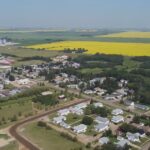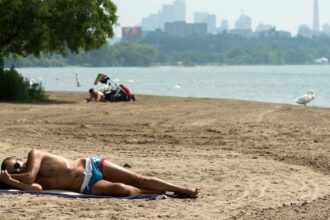In a dramatic escalation of civic action, Williams Lake city council is contemplating declaring a state of emergency as crime and social disorder reach unprecedented levels in this central British Columbia community. The growing crisis has transformed everyday life for residents, with businesses installing protective barriers and citizens expressing fear about walking their own streets after dark.
“We’ve reached a breaking point,” declared Mayor Surinderpal Rathor during Tuesday’s council meeting, where he revealed that local RCMP resources are severely strained with only 14 officers attempting to manage a jurisdiction of nearly 20,000 people. “When business owners are barricading their storefronts and residents are afraid to venture downtown, we must acknowledge this is no longer just a policing issue but a community emergency.”
The situation in Williams Lake mirrors a troubling pattern emerging across Canada, where smaller communities are increasingly grappling with crime rates traditionally associated with larger urban centers. Local authorities point to a complex web of contributing factors, including substance abuse issues, homelessness, and inadequate mental health resources.
Councillor Scott Nelson, who proposed the emergency declaration, emphasized that conventional approaches have failed. “We’ve tried working through traditional channels for years,” Nelson stated. “The provincial government needs to recognize that we require immediate intervention with additional RCMP officers, mental health supports, and resources to address addiction issues at their root.”
The council’s frustration stems partly from what they describe as a revolving door justice system. According to police reports shared at the meeting, the same individuals are repeatedly arrested for property crimes and quickly released, often to reoffend within days. This cycle has eroded public confidence in the criminal justice system and left business owners feeling abandoned.
Local business owner Margaret Chen described the impact on her downtown shop: “I’ve installed security gates, cameras, and still face weekly vandalism. My insurance premiums have tripled, and I’m considering closing after 22 years. This isn’t the Williams Lake I knew.”
The potential state of emergency declaration would be unprecedented for crime-related issues in British Columbia, raising questions about its legal weight. Municipal states of emergency are typically reserved for natural disasters or public health crises, though council members argue the current situation constitutes a different type of emergency requiring similar urgent response.
Provincial authorities from the Ministry of Public Safety have agreed to meet with Williams Lake officials next week, though they’ve indicated that a municipal declaration may not automatically trigger additional resources. The ministry spokesperson noted that “addressing community safety requires collaborative approaches across multiple government levels and agencies.”
Community advocates, while supportive of immediate action, caution against measures that might criminalize poverty or mental illness. “We need to be careful that our response doesn’t further marginalize vulnerable populations,” said Dr. Ellen Robichaud, director of a local social services agency. “Any effective solution must include housing supports, treatment options, and economic opportunities alongside enforcement.”
As Williams Lake contemplates this extraordinary measure, communities across Canada are watching closely. The outcome may establish a precedent for how municipalities can respond when traditional approaches to public safety and social disorder prove insufficient.
The question now facing not just Williams Lake but communities nationwide is profound: In an era of limited resources and complex social challenges, what responsibility do provincial and federal governments have to intervene when local communities declare themselves in crisis? The answer may reshape how Canada addresses public safety in its smaller communities for years to come.

























